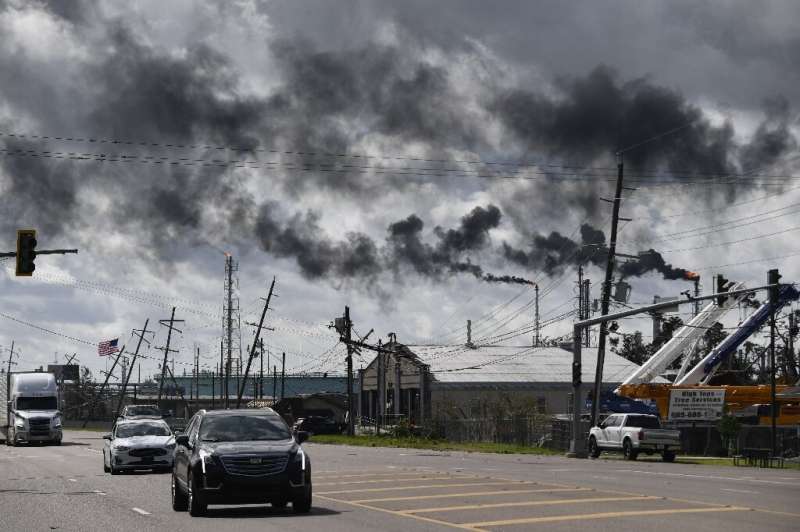With the COP26 summit starting next week, the UN's climate team said the latest plans confirmed "worrying trends" of countries delaying sorely needed emissions cuts.
The latest round of national emissions cutting plans submitted under the Paris Agreement will make no material dent in short-term carbon pollution levels and still put Earth on course to warm 2.7C, the UN said Monday.
With the COP26 summit starting next week, the UN's climate team said the latest plans confirmed "worrying trends" of countries delaying sorely needed emissions cuts.
The landmark 2015 Paris accord saw countries commit to limiting global heating to "well below" two degrees Celsius above pre-Industrial levels and to strive for a safer cap of 1.5C through sweeping emissions reductions.
Under the deal's "ratchet" mechanism, signatories are required to submit new climate plans—known as Nationally Determined Contributions, or NDCs—every five years.
In an update to a recent assessment of NDCs submitted ahead of COP26, which was delayed one year due to Covid-19, the UN said that 143 countries had submitted new or updated NDCs.
Taken together, these plans would see emissions from these nations fall 9 percent by 2030 compared to 2010 levels.
Yet, taken together, all Paris signatory plans would see emissions rise a "sizeable" 16 percent this decade, it said.
The Intergovernmental Panel on Climate Change (IPCC) says emissions must fall 45 percent over that timeframe to keep in line with the 1.5C target.
The current commitments will lead to 2.7C of global heating by 2100—the same as in September's assessment.
"The message from this update is loud and clear: Parties must urgently redouble their climate efforts if they are to prevent global temperature increases beyond the Paris Agreement's goal of well below 2C -– ideally 1.5C -– by the end of the century," said UN climate chief Patricia Espinosa.
'Critical decade'
The IPCC said in August that the 1.5-C limit could be breached by 2030 and would be surpassed by mid-century no matter what happens with emissions.
Many countries who submitted new NDCs have also announced plans to achieve net-zero emissions around 2050.
Monday's assessment showed that group of 143 nations plans would lead to emissions levels 83-88 percent lower than 2019 levels by 2050.
But it warned of the risks of delaying decarbonisation.
"Overshooting the temperature goals will lead to a destabilised world and endless suffering, especially among those who have contributed the least to the GHG (greenhouse gas) emissions in the atmosphere," said Espinosa.
COP26 host Britain says it wants promises made at the summit to keep 1.5C within reach.
Notably absent from the latest round of NDCs were China and India, the world's first and fourth biggest emitters, respectively.
COP26 president Alok Sharma called on G20 nations—responsible for 80 percent of all manmade emissions—to work together at the summit for "stronger commitments... over this critical decade."
"Glasgow must launch a decade of ever-increasing ambition. At COP26 we must come together for ourselves, future generations and our planet," he said.
© 2021 AFP
























